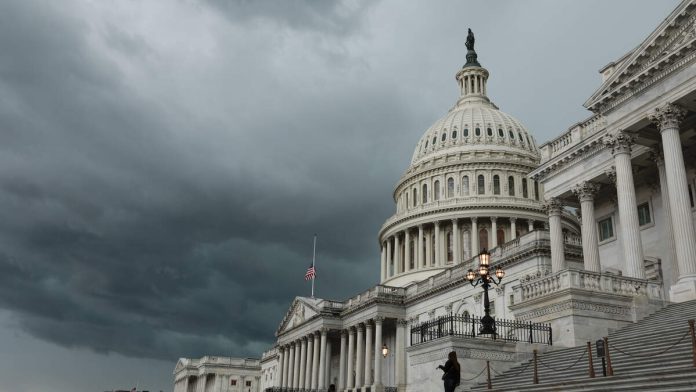After a six-week summer recess, lawmakers returned to the Capitol on Monday (September 9) with a pressing task at hand: averting a government shutdown. They have just three weeks to do so, as funding for the government runs out at the end of the fiscal year on September 30. A shutdown would close federal agencies and national parks, limit public services, and furlough millions of workers just weeks before the election.
Former President Donald Trump is urging Republicans to force a shutdown unless certain demands are met. The Republican-led House has released a stopgap bill that would keep money flowing through March 28 and tie it to the SAVE Act, a GOP-led bill to overhaul voting laws nationwide by requiring proof of citizenship to vote. Democrats oppose the latter measure, noting that it’s already illegal for noncitizens to vote, with hefty penalties that make the practice very rare.
House Speaker Mike Johnson said House Republicans are “taking a critically important step to keep the federal government funded and to secure our federal election process.”
However, if the bill passes the House, it’s unlikely to progress in the Democratic-led Senate. Senate Majority Leader Chuck Schumer and Senate Appropriations Committee Chair Patty Murray warned that the odds of a shutdown increase if the House Republicans continue down this path.
Also expiring on September 30 is the farm bill for agriculture programs, which is expected to be extended on a stopgap basis with a continuing resolution.
As Congress works to prevent a shutdown, the House committees are also conducting investigations into the Democratic presidential ticket and the botched U.S. withdrawal from Afghanistan in 2021.

Recent Comments